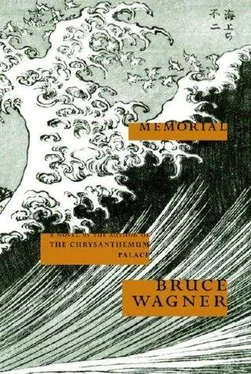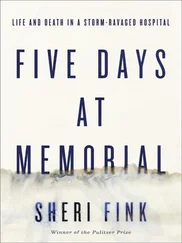Maybe your next retirement party won’t be your last.
Maybe all a gold watch tells you is the time.
Maybe bingo doesn’t appeal to you.
Maybe today is the day you wake up and say…
Hello future.
Yes.
She was a rich woman now.
As if to signal the auspiciousness of this time, her daughter stopped by. In a tenderly fractured moment, she thought that perhaps Mr Weyerhauser had contacted Joanie to ask her if she “knew.” Then Marj realized that of course he hadn’t, and of course she didn’t, it was probably a federal law not to inform loved ones until a specific time; and just an apt coincidence, felicitous, that Joanie was there, now, looking so beautiful, standing before her after so many weeks. It took everything she had not to tell her youngest of the astonishing sea change. (The old woman was planning to share the wealth, as any mother would.) She’d wait until Mr Weyerhauser gave the “all clear.”
Her head was in a whirl. She thought of going out on a limb and inviting Joan to the Taj Mahal in Agra, traveling like royalty on the Deccan Queen like Judy Davis and Dame Peggy. Her daughter was stubborn and finicky yet why wouldn’t she assent? The windfall might alter her view, not in the sense of greed, but in the spirit of sheer life’s-too-short celebration. Besides, for an architect, seeing that tomb was a busman’s holiday. Before she could work up the courage to ask, Joan got paged from her office and had to leave. She’d only been there half-an-hour but told her mother she would phone in the evening to make dinner plans. Marj decided to extend the invitation then, at an Indian restaurant: perfect.
The last few days it was hard to sleep, even with her trusty Halcion. Around midnight, she made herself chocolate pudding and a festive Baileys Irish Cream, then watched the hotel DVD a 3rd time. After the viewing, she still wasn’t tired, and pored over a historical book from which she used to read to the kids — captivated by the familiar tale of the Taj. (Her beloved hotel’s namesake.) The Mughal emperor built it as a monument to his wife who died in childbirth. It took 22 years to put up; each day, elephants laden with marble and precious stones formed 10-mile processions. When all was done, the emperor plucked out his architect’s eyes — or cut off his hands, depending on the version you were reading — so as never to be able to replicate such a thing of beauty. As if it were possible! Thank the Lord her Joanie wasn’t prey to such barbarities! There was some anecdotal confusion over the fate of the Taj Mahal hotel ’s designer as well. Her father’s account had him jumping into the sea when he saw his dream built backward; others said he shot himself through the heart.
The most interesting detail about the monument in Agra was something she’d read long ago but forgotten: the emperor Shah Jahan intended to build a 2nd mausoleum, for himself, just across the river, made of black marble instead of white. (The memorials were to be linked by a black-and-white bridge.) What amazed Marj most was that this unbuilt crypt was often referred to as a “shadow” monument. Wasn’t that glorious? It must be divine providence, for shadow was the very word Lucas Weyerhauser (it gave her pleasure to say his name aloud, like an abracadabra to all countries she would one day visit) had invoked to describe the source of her newly minted Mega Millions.
The shadow drawings of Blind Sisters.
MR Weyerhauser was precise in his instructions.
She would go to Wells Fargo and obtain a money order for $11,492, made out to the State of New York. This would be a “marker” to secure her winnings, demonstrating to the State Attorney that she had been officially contacted and was in full agreement with the magnanimous terms of her godsend. (With Lucas’s help, she had already completed several pages of the calligraphic onionskin contract.) Before he left, he gave her an ornately beautiful cashier’s check, of a kind she had never seen: modern yet somehow reminiscent of 19th century currency. Like something out of the Wild West! It was embossed, covered over with all kinds of gold and delicately woven ink scrollings. Lucas said it was done that way to avoid counterfeiting, and the paper these sort of checks were written on alone cost in the proximity of a hundred dollars.
The draft was in the amount of $1,863,279.47. He said, with a gleam in his eye, that leaving it “wasn’t really kosher, but I know you won’t go out and splurge.” There were taxes to be paid before the monies could be collected, and though his bosses in New York were real sticklers about it, he often left these checks with his “sisters” anyway, because it was fun. (The 1st payment of what would be a total of 4 over the next 6 months.) It had become his “signature” to put them in the hands of the winners, prematurely; he had the feeling his bosses knew, but looked the other way because he was good at what he did and had been doing it a long while. Lucas understood how “damned exciting” the whole thing was and “if it were me, I’d want someone to do the same.”
She went to Wells and got the money order (he told her not to “gossip” about what it was for, especially if the teller was “chatty”). Lucas said he’d come back sometime in the next few days. He wasn’t too specific about when —there were other winners to contact; one lived as far away as Ojai, and the federal rule was that he had to greet the winners himself. She dialed the number on his business card and got a recording: “You have reached the State of New York Blind Sister Beneficiary Hotline.” She quickly hung up, thinking that perhaps she’d violated some sort of protocol. It made her feel silly, yet glad everything was on the up-and-up. She almost broke out the Baileys again.
Marj left a get well note in Cora’s mailbox. She knew Cora and Pahrump were at the hospital, and wrote on the card how bad she felt, and that she hoped— was certain —Pahrump would soon be better. (She didn’t want to mention leukemia. She didn’t even know how to spell it.) Enclosed was a check for 25-hundred-dollars that she requested be given to any place that helped dogs and other animals who were “having a rough go.” Cora was well-off and she purposefully left the Payee space blank, rather than filling in her name, in the chance the neighbor might take offense and think she was offering money for Pahrump’s care, which certainly wasn’t the case.
Then she strolled to Riki’s.
She’d uncharacteristically forgotten to get a receipt for her balance while at Wells, so she went to an ATM a block away from the liquor store. Paying the cash machine fee was a luxury Marj could afford: her savings, CDs, and money market were in excess of $925,000. That was her worth — excluding Hamilton’s monthly pension and Social Security checks, excluding the value of her house (about a million), excluding the recent, salutary generosity of the magisterial State of New York.
They were open for business. Flowerpots and blackened, stuttering, or gutted half-broken votive candles still lined the sidewalk. The handwritten notices had increased in number. There was no one in the shop but Riki’s son. Marj smiled, albeit painfully, and he said hello, a little painfully too. She was worried about what to say — she’d made a few dry runs in her mind but no words had come — and the old woman began to involuntarily tremble. He was a kind, good boy and, seeing her distress, approached. Marj hadn’t planned to be the party who needed comforting but so be it. They looked in each other’s eyes and she told him how sorry she was. It was that simple, and thankfully the right words had come, without effort. God had given them to her. He asked if she wanted something to drink. An elegant, haggard-looking woman in a sari emerged from behind the curtain of the back room. She must be Riki’s wife; the poor boy’s mother! Marj smiled, steadier this time, walking toward her. The widow wasn’t as welcoming as her son but not unfriendly. A different generation, and a creature far more shattered by the loss. Mrs Riki’s head bobbled back and forth in greeting, just as her husband’s used to. They took each other’s hands, eyes starting to brim. Marj reached for her pocketbook and took out the envelope with the 2nd money order she’d gotten from the bank. She pressed it into the silently protesting widow’s hands. With the fortitude of a good witch in a fairy-tale, Marj made it clear she’d brook no refusal and perhaps because of her age, or simple aggrieved and grievous exhaustion, or because Marj was physically frailer than Mrs Riki, the widow acquiesced. Now there were freefalling tears all around. As the old woman left the store, she thanked the widow and son out loud. Later, she wondered if that was an odd thing to do — not the pressing of the money into her hands, but the thanking of them — then she thought, no, that was absolutely the right thing, God had given her words again, to thank them, to thank the spirit of the husband and father for the kindnesses he had showered onto the entire neighborhood in this small corner of the world, a corner so far from the one they knew. The State of New York would soon be thanking them as well, she was grateful to have played her part, and Marj wondered if the widow had been formally told. She’d forgotten what Mr Weyerhauser — Lucas — had said about that, but the notification of vendors and merchants was probably a duty left to someone other than the young man.
Читать дальше












